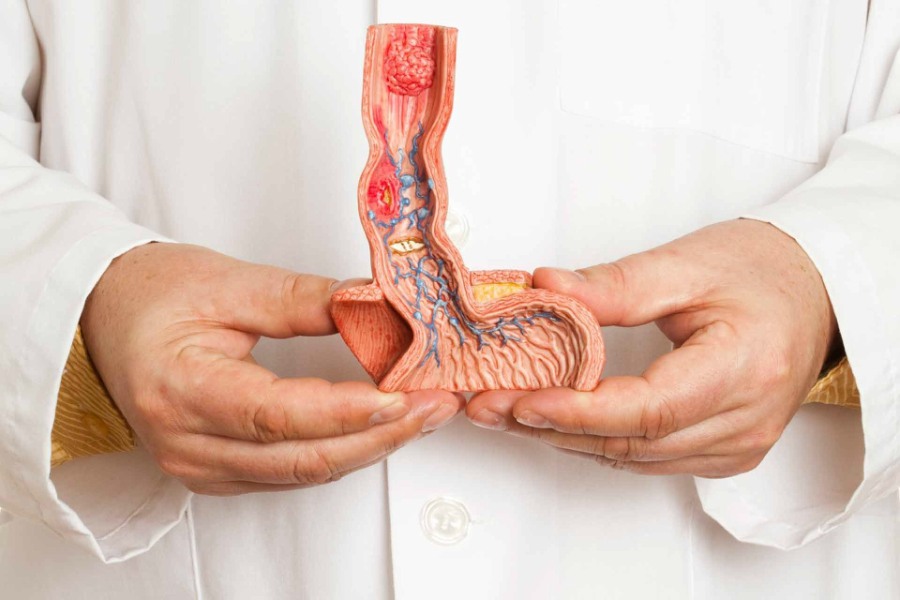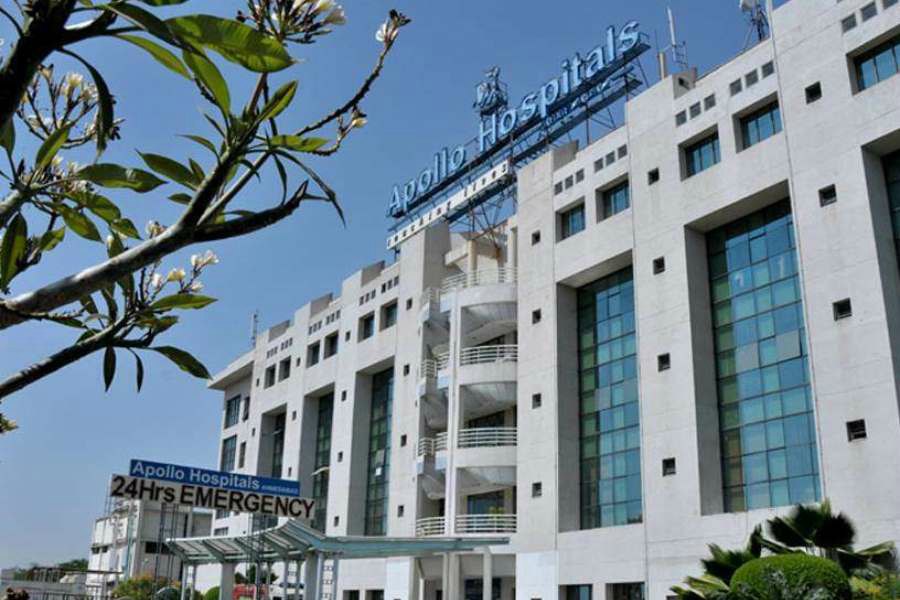
Overview
Penile cancer is a rare type of cancer in men. In this cancer, the cancer cells begin to develop in the tissue of the penis. Penis is the male sex organ that expels urine and sperm. It is made up of skin, muscle, blood vessels and nerves.
There are four common types of penile cancer:
- Squamous cell cancer:The most common type of penile cancer in which cancer starts in the squamous cells (flat skin cells) present on the surface of the penis.
- Carcinoma in situ: It is an initial type of squamous cell carcinoma in which cancer has affected the surface cells but not the deeper cells.
- Adenocarcinoma: This type of cancer begins in the glandular cells of the penis (that produces sweat)
- Melanoma of the penis: Cancer that develops in the melanocytes cells (that provides colour to the skin) that are present on the surface of the penis.
Causes
Till date, the exact cause of the condition is yet unknown. But, it is found to be linked with various other conditions. Human papillomavirus (HPV) can cause penile cancer, which can be sexually transmitted.
The trapped body fluid in the foreskin of the penis, which stays there for a long duration may lead to cancer development of penile cancer. AIDS can also lead to penile cancer.
Other factors, such as smoking or increased age, are also associated with an increased risk of penile cancer.
SYMPTOMS
Look for the following signs and symptoms of penile cancer:
- Change in the skin colour of the penis
- Formation of a lump in the groin area
- Ulcer
- Skin thickening
- Reddish rash under the foreskin
- Crusty small bumps
- Flat growths
- Foul-smelling fluid discharge under the foreskin
- Swelling at the end of the penis
The signs and symptoms mentioned above can be due to other conditions. Thus, if you observe any of the signs and symptoms, consult a physician and get tested to be sure.
DIAGNOSIS
When you visit your doctor for the first time, your medical and medication history, and detail about the symptoms will be obtained. Next, a general physical examination followed by a detailed examination of the genitalize would be done. Some further tests may be performed to further diagnose the condition, such as:
- Blood tests: To evaluate the overall health of the patient.
- Biopsy: To confirm the cancer, biopsy is done. A small portion of the area that is changed is excised and sent to the laboratory for microscopic evaluation to detect cancer cells.
- Imaging tests: To determine the extent of cancer, tests like CT scan, MRI scan, chest X-ray and ultrasound may be performed.
Stages of penile cancer
- Stage 0: In this stage, the cancer is present only on the top layer of the skin of the penis.
- Stage 1: In this stage, the cancer have grown below the skin of the penis into the connective tissue. But, not in the lymph vessels and blood vessels.
- Stage 2: In this stage, the cancer have grown in the connective tissue, blood vessels and lymph vessels. It may also spread into the corpus spongiosum (sponge-like region of the erectile tissue).
- Stage 3A: In this stage, the cancer has involved the penis and a lymph node (one) in the groin region. It may spread to the deeper tissues of the penis, nearby lymph nodes or the urethra.
- Stage 3B: In this stage, the cancer has involved the penis and several lymph nodes in the groin. It may even spread to other side of the groin.
- Stage 4: In this stage, the cancer has reached up to the surrounding structure of the penis like prostate gland.
- In advance stage, it may also spread to the lymph nodes, and has spread to the organs and tissues in other parts of the body like bones, lungs or liver.
In the initial stages, you may notice an ulcer on the skin of the penis or bleeding from the penis. Sometimes, a rash on the penis or change in colour of the penis or the foreskin may be noticed. In advanced stages, you may experience swollen lymph node in the groin, abdominal pain, pain in the bones and weight loss.
POST-OPERATIVE CARE
Based on the type of procedure, the recovery time may vary. You may have a tube passed in the groin to remove the excessive fluid. If part or whole penis is removed, there may be fluid coming out from the wound. If you had a skin graft, there might be a dressing at the area to keep it clean.
Tips for fast recovery
- Following measures may aid in speedy recovery after the surgery:
- Start moving around as soon as possible
- Get a regular check-ups done
Duration of the treatment
The duration of the surgery differs for every procedure. If required radiation therapy may be given as a short course of daily treatment to the affected area to relieve the symptoms. Chemotherapy may also be given for several days.
TREATMENT
Penile cancer can be treated successfully with very low risk if diagnosed in an early stage.
Any of the following methods can treat penile cancer:
Surgery:Surgery is most common treatment option for all stages of penile cancer.
- The surgical approach depends upon the type of cancer:
Small cancer that has not spread to other parts of the body: In this condition, only the tumor is removed without removing the part of the penis. - Advanced stage cancer: The part or whole penis may be removed .
- Deep tumours in the penis: The tumour along with the nearby lymph nodes in the groin are removed to check for the extentof cancer.
The types of surgery performed to remove the tumour:
- Circumcision: In this method, the foreskin and little nearby skin are removed. This method may be effective in curing small cancers of the foreskin. It may also be performed before radiation therapy.
- Simple excision: In this method, the tumour with some nearby normal skin is removed.
- Wide local excision: The tumour, along with a large amount of normal tissue, is removed. This method is done to make sure all the cancer cells are completely removed.
- Mohs surgery:In this method, the skin layer where cancer may have invaded is removed and checked under the microscope at the same time. If cancer is detected in the layer, another layer is also removed and examined. The process is repeated until the cancer cells are detected. The main aim of the treatment is to save more amount of normal tissue near the tumour.
- Glansectomy: This method is used to treat small tumours that are only present on the tip of the penis (glans). The part or whole glans may be removed. After the surgery, it may be rebuilt by skin grafts.
- Penectomy: It is the most common and the best method to treat penile cancer that has grown deep inside the penis. In this method, part or whole penis is removed to remove cancer completely. It is of two types:
- Partial penectomy: In this method, only the end of the penis is removed.
- Total penectomy: In this method, all part of the penis is removed including the root (that extend into the pelvis). A new opening is created in the perineum (the area between the scrotum and the anus) for the urine to drain out. It is known as a perineal urethrostomy
- Emasculation: In the case of advanced tumours, the penis, along with the scrotum and testicles, are removed.
- Lymph node surgery: In the cases when cancer has grown deep within the penis, some nearby lymph nodes are removed along with the tumour. The lymph nodes are examined for cancer cells. . It is of different types:
- Sentinel lymph node biopsy (SLNB): In this method, the sentinel nodes (a first lymph node that drains the tumour) will be removed. If the cancer is detected in the nodes, further surgery will be done to remove the affected lymph node.
- Inguinal lymphadenectomy: If the groin lymph nodes are swollen, which is not being cured by antibiotic course, the lymph nodes may be removed.
- Pelvic lymph node surgery: In cases when the cancer is being detected in the inguinal lymph nodes, the pelvic lymph nodes are removed and checked for presence of cancer.
Men with penile cancer are often treated by surgery, but in some cases, radiation therapy alone or along with surgery may be recommended . Radiation therapy can be given to the groin lymph nodes after surgery.
Chemotherapy with radiotherapy can be given in some cases before or after the surgery. It can also be given in cancer that has spread to the other parts of the body.
FACTORS AFFECTING COST
The overall treatment cost for penile cancer depends on several factors, such as:
- Location of the hospital
- Type of treatment
- Surgical procedure, including operating room cost per hour, anaesthesia used, and hospital stay
- Doctor’s fee based on the expereince
- Hospital stay
- Current medication cost
- Follow-up visits


 Best Hospitals
Best Hospitals












